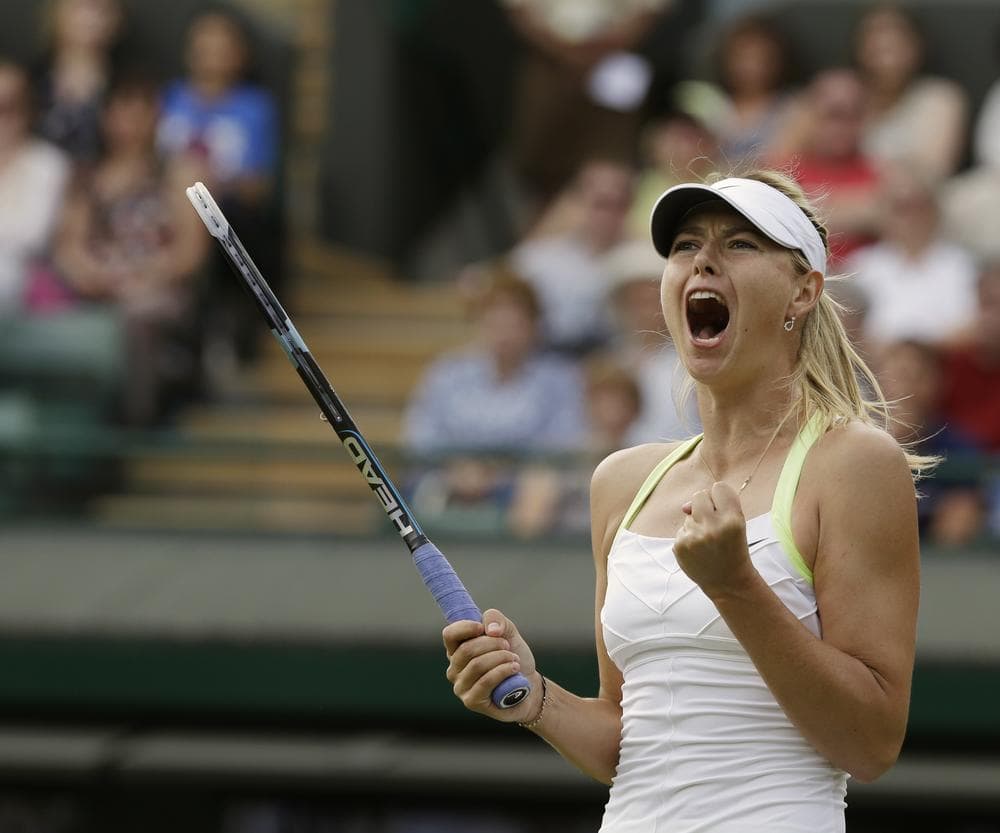Advertisement
In Depth
A Grunt By Any Other Name...
Resume
In 1978, when Martina Navratilova won her first Wimbledon title, she and her opponent, Chris Evert, began the final with a 14-shot rally and nary a grunt.
Fast forward 34 years to last month, when Maria Sharapova and Sarah Errani shrieked their way through the final of the 2012 French Open.
In 2009, Navratilova compared the noises current players make to cheating. "If you don't hear the ball hit the racket, you depend on that, and whether the player's doing it on purpose or not is irrelevant," she said. "They shouldn't be doing it and the umpire needs to take care of that.
Earlier this week the Women's Tennis Association outlined their plan to, as WTA chairman Stacey Allaster said, "drive excessive grunting out of the game for future generations." That plan includes educating younger players, designing a handheld device to measure the volume of infractions, and establishing guidelines that more precisely define what's considered a "hindrance" to the game.
"They also have to figure out what is an acceptable and unacceptable sound," said Douglas Robson, tennis correspondent for USA Today. "Is it the pitch of the sound? Is it the length of the sound? Is it the decibel level of the sound? These all things that have to be worked out before they can put any type of new technology in place."
These new rules will not apply to the current generation of tennis players, who like Sharapova and Victoria Azarenka, are not inclined to tone down the noises they make on the court.
"They've talked to psychologists and sports science experts," Robson said. "This is an integral, ingrained part of the way they play, and asking them to change the way they expel air when they hit the ball would be too much."
No conversation about grunting would be complete without a mention of Monica Seles, who beat Martina Navratilova for her first Grand Slam win at the French Open in 1990. According to veteran tennis analyst Bud Collins, Monica just didn't play like Monica without all the noise.
"In 1992, when Monica Seles, who was the first of the big time grunters, came into Wimbledon as the favorite, and two players complained about her grunting," Collins said. "Martina Navratilova was one of them, and a French player was another, and Monica tried to cut it out and she played miserably, and lost the final easily."
But if players like Maria Sharapova based their screams on the grunts of Monica Seles, and today's junior players are basing their shrieks off Maria Sharapova, how young will the WTA have to go to stamp out this problem?
"Imitation in all sports of course happens," Collins said. "But when you hear these sopranos, I think they are pretty much all sopranos, there are people who wish they would imitate Tosca, and jump off the wall."
Not all of the grunters are sopranos. When Rafael Nadal beat Novak Djokovic at the French Open final earlier this month, both men made more than a little noise.
But, there are no signs that the ATP will follow the WTA's lead.
"For whatever reason, and certainly the specter of sexism comes into this, people don't seem to find it to be as distracting or as annoying as the women," said Robson.
This segment aired on June 30, 2012.